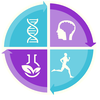Informed Consent for Treatment
I hereby give my consent to the performance of diagnostic tests and procedures and chiropractic treatment or management of my condition(s).
Chiropractic treatment or management of conditions almost always includes the chiropractic adjustment, a specific type of joint manipulation. Like most health care procedures, the chiropractic adjustment carries with it some risks. Unlike many such procedures, the serious risks associated with the chiropractic adjustment are extremely rare. Following are the known risks:
I understand that Dr. Scott Monk also utilizes other forms of diagnostic and therapeutic treatments such as laser therapy, acupuncture and nutritional recommendations as a complement to chiropractic care.
I understand that the practice of chiropractic, acupuncture, or nutritional recommendations, like the practice of all healing arts, is not an exact science, and I acknowledge that no guarantee can be given as to the results or outcome of my care.
I will discuss any questions or concerns I have to my satisfaction prior to receiving treatment in the office of Dr. Scott Monk. I have made my decision voluntarily and freely.
Chiropractic treatment or management of conditions almost always includes the chiropractic adjustment, a specific type of joint manipulation. Like most health care procedures, the chiropractic adjustment carries with it some risks. Unlike many such procedures, the serious risks associated with the chiropractic adjustment are extremely rare. Following are the known risks:
- Temporary soreness or increased symptoms or pain - It is not uncommon for patients to experience temporary soreness or increased symptoms or pain after the first few treatments. Dizziness, nausea, flushing These symptoms are relatively rare. It is important to notify the chiropractor if you experience these symptoms during or after your care.
- Fractures - When patients have underlying conditions that weaken bones, like osteoporosis, they may be susceptible to fracture. It is important to notify your chiropractor if you have been diagnosed with a bone weakening disease or condition. If your chiropractor detects any such condition while you are under care, you will be informed and your treatment plan will be modified to minimize risk of fracture.
- Disc herniation or prolapse - Spinal disc conditions like bulges or herniations may worsen even with chiropractic care. It is important to notify your chiropractor if symptoms change or worsen.
- Stroke - A certain extremely rare type of stroke has been associated with chiropractic care. Although there is an association between this type of stroke and chiropractic visits, there is also an association between this type of stroke and primary care medical visits. According to the most recent research, there is no evidence of excess risk of stroke associated with chiropractic care. The increased occurrence of this type of stroke associated with both chiropractic and medical visits is likely explained by patients with neck pain and headache consulting both doctors of chiropractic and primary care medical doctors before or during their stroke.
- Other risks associated with chiropractic treatment include rare burns from physiotherapy devices that produce heat.
- Bruising - Instrument assisted soft tissue manipulation may result in temporary soreness or bruising.
I understand that Dr. Scott Monk also utilizes other forms of diagnostic and therapeutic treatments such as laser therapy, acupuncture and nutritional recommendations as a complement to chiropractic care.
I understand that the practice of chiropractic, acupuncture, or nutritional recommendations, like the practice of all healing arts, is not an exact science, and I acknowledge that no guarantee can be given as to the results or outcome of my care.
I will discuss any questions or concerns I have to my satisfaction prior to receiving treatment in the office of Dr. Scott Monk. I have made my decision voluntarily and freely.
